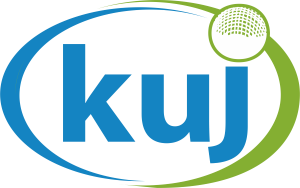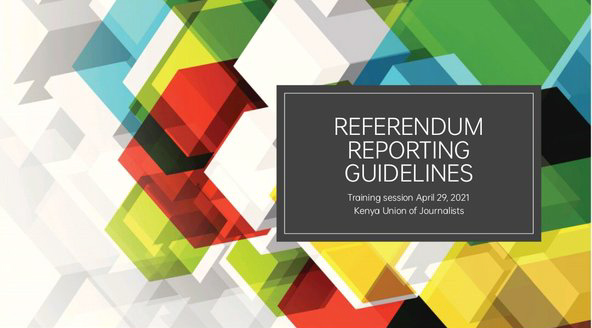KUJ Trains Journalists on Referendum Reporting Guidelines
At least 80 journalists from 20 counties across Kenya participated in online training aimed at improving their coverage of the referendum debate in their media houses.
The Kenya Union of Journalists (KUJ) organised four sessions where reporters were briefed on best practices in referendum reporting.
This focused on editorial independence, accuracy, impartiality, how to conduct talk shows, research skills, media ethics, publishing public opinion polls, diversity and plurality of voices, protection of children and women, use of social media, fake news and misinformation.
In addition, the training was aimed at creating an understanding of the referendum reporting guidelines for journalists and how they can apply them during the execution of their work in a manner that promotes accountability and stimulates free and fair public discourse.
The media must be prepared. https://t.co/YwHLtEdq7d
— Eric Oduor (@Oduorerick) April 30, 2021
Issues discussed reflected on a broad range of the challenges journalists in Kenya face in accommodating discussions that revolve around:
- Safety for journalists
- Media ownership and how it affects editorial independence
- Welfare/ brown envelope and how affects their work
- Influence of advertisers
- Interviewing skills
- Media and diversity
This morning, we are taking journalists through the referendum reporting guidelines developed with the support of @MediaCouncilK @SADES_K @AMWIK @CSRGKenya and input from the Kenya Media Sector Working Group. pic.twitter.com/U4R2g7KvdN
— KUJ Kenya (@KUJ_Kenya) May 19, 2021
The training session was facilitated by Mr Eric Oduor, Secretary-General KUJ, those also present from the consortium were: Ms Dinah Ondari, Media Council of Kenya, Mr Victor Bwire, MCK, Mr Sammy Muraya, Journalists for Human Rights, Mr Abraham Marita, Internews Kenya, Mr Jacob Nyongesa, MCK and Mr Wanyama Chebusiri, seasoned journalists and media consultant.
.@AbraMariita, @InternewsKE: Our role as journalists is not to take. We need to be prepared to cover the referendum process in a way that is beneficial to the Kenyan public to make informed decisions. #ReferendumGuidelinesKe
— KUJ Kenya (@KUJ_Kenya) April 29, 2021

